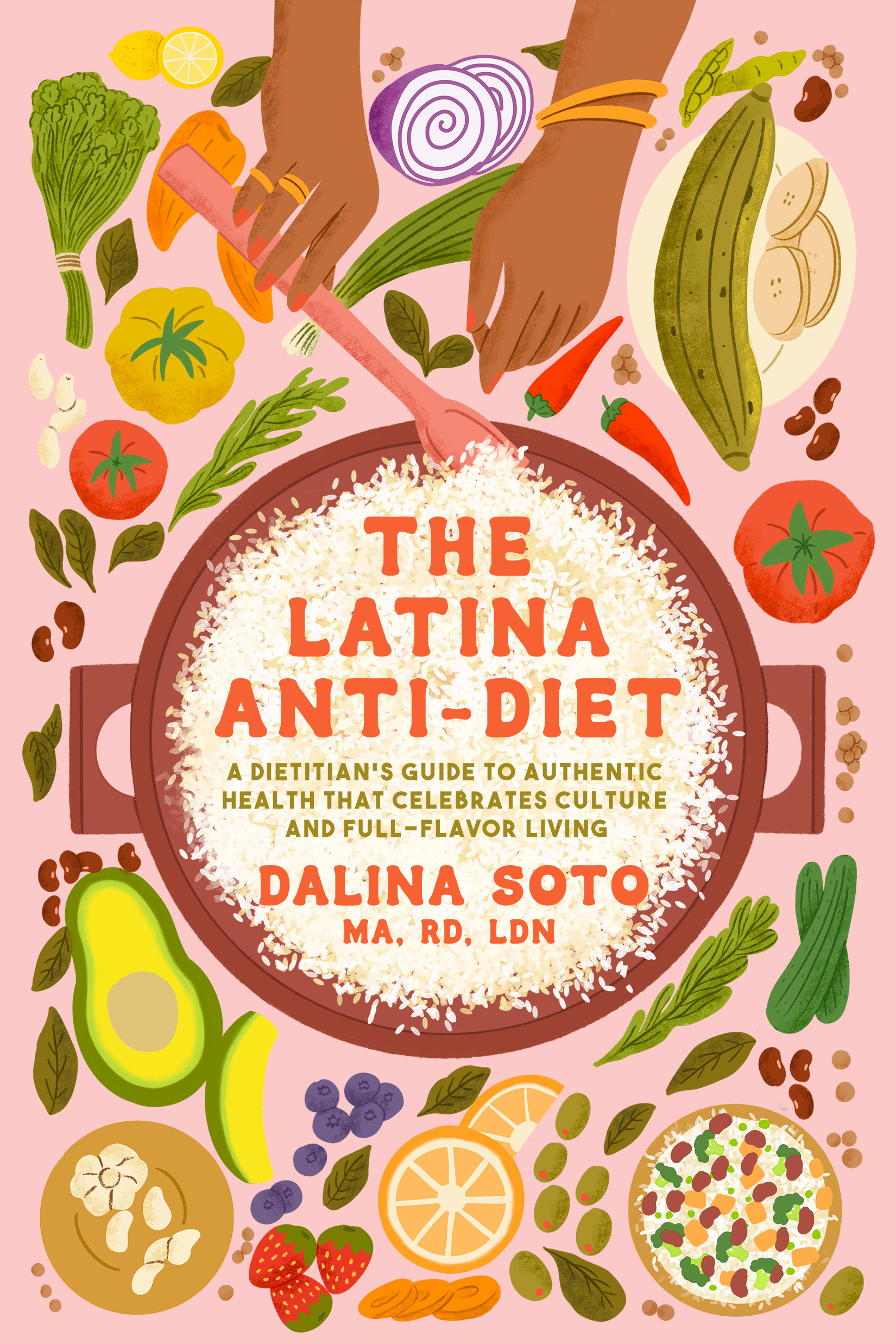Latine food often gets a bad rap as being “unhealthy,” but Dominican-American dietician Dalina Soto is on a mission to remove the guilt and shame that comes with enjoying cultural dishes.
“Many Latinos grow up hearing that our food is ‘too greasy,” ‘too starchy,’ or ‘not balanced,’ often from health professionals who don’t understand our cuisine,” Soto tells Remezcla. “This stigma has been reinforced by marketing, the weight loss industry, and even public health campaigns that fail to acknowledge that Latino foods are naturally rich in fiber, protein, and heart-healthy fats.”
Soto aims to empower people to eat in a way that honors their culture, body, and overall well-being without guilt or shame through her new book The Latina Anti-Diet, which is based on her experience of over 12 years as a registered dietician.
“You don’t have to give up your food,” Soto says. “You can manage blood sugar, cholesterol, and overall health while still enjoying arroz, frijoles, tortillas, and tamales. The key is learning how to build balanced meals within your culture, not around someone else’s diet standards. A plate of arroz con frijoles already provides fiber, protein, and essential vitamins. Adding avocado, grilled meats, and fresh salsas enhances it further. The goal is to embrace your food, not abandon it.”


While Latinos are reported to experience some of the highest obesity rates in the nation, according to the U.S. Department of Health and Human Services Office of Minority Health, Soto challenges the health industry’s use of body mass index (BMI) and writes in her book that “it is not an accurate measure of health, and it was never intended to be.”
Soto mentions several reasons why BMI harms us more than it helps us find “health,” such as how BMI oversimplifies health as it doesn’t measure fat versus muscle, the distribution of fat, bone density, or overall health. As a result, she says doctors often focus too much on weight – with Latine food often taking much of the blame instead of other systemic issues such as food scarcity and insecurity — and patients get led toward a path that promotes dieting behaviors and disordered eating.
“The idea that Latino food is ‘unhealthy’ or ‘bad’ is deeply rooted in colonialism, racism, and diet culture,” Soto says. “Western nutrition frameworks have long demonized foods from non-white cultures while simultaneously celebrating them when they are rebranded by mainstream wellness culture.”

All too often, Latine food is deemed “unhealthy” until it’s whitewashed and repackaged into things like “cowboy caviar” and “spa water ,” which are otherwise just pico de gallo and agua fresca, respectively.
“It’s frustrating and honestly exhausting to see our foods dismissed as ‘bad’ until they’re renamed and marketed to a different audience. It’s a form of cultural erasure that strips these foods of their roots while capitalizing on their flavors and benefits,” Soto shares. “I encourage Latinos to take pride in their food and reject the idea that they need to swap out rice for quinoa or tortillas for lettuce wraps to be ‘healthy.’”

In addition to her new book, Soto is also helping others incorporate cultural foods in the nutrition movement. One example is her latest collaboration with Guayakí Yerba Mate, where together they advocate for honoring cultural traditions, challenging diet culture narratives, and ensuring that enjoying traditions aren’t stripped of their roots for the sake of marketability.

“My work is about reclaiming our cultural foods and rejecting the idea that we need to replace them with diet-culture-approved versions. Yerba mate has been part of Latin American traditions for centuries, and I love that Guayakí is making it accessible [here in the U.S.] while respecting its origins,” Soto says.
In addition to advocating to maintain cultural connections to Latine food at a large scale, Soto also strives to make an impact at a personal level throughout the U.S. alongside her team of registered dietitians who offer nutrition counseling through her private practice, Nutritiously Yours.
“Through my book, social media, and counseling, I help people reconnect with their cultural foods without guilt, so they can enjoy them without constantly feeling like they need to justify or modify them. I like to teach the science [of nutrition] so they feel empowered and do not have to question the ingredients they use,” Soto says. ““I hope readers walk away feeling empowered to eat in a way that honors their culture, body, and overall well-being, without guilt or shame.”




